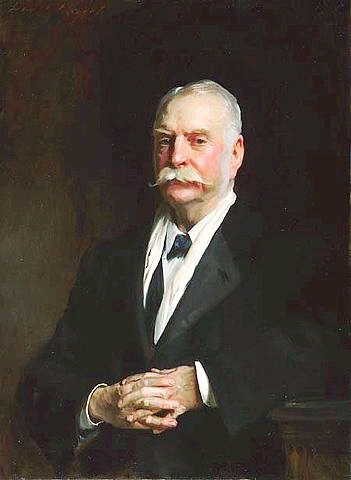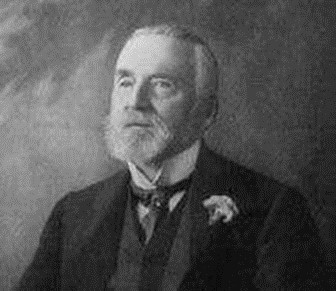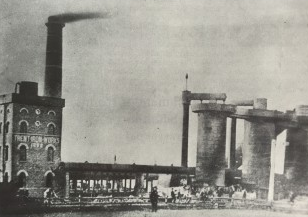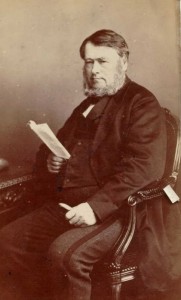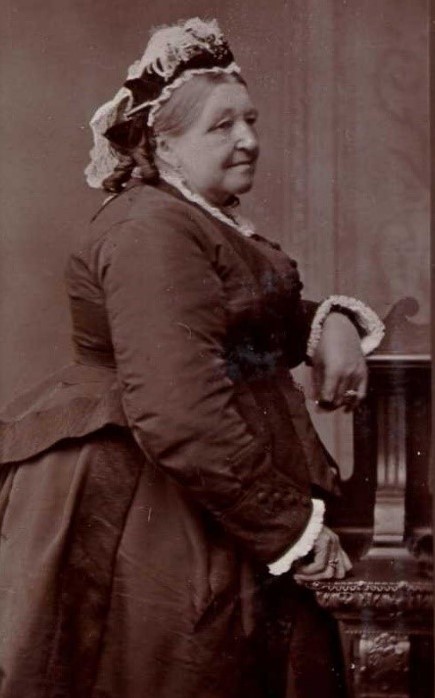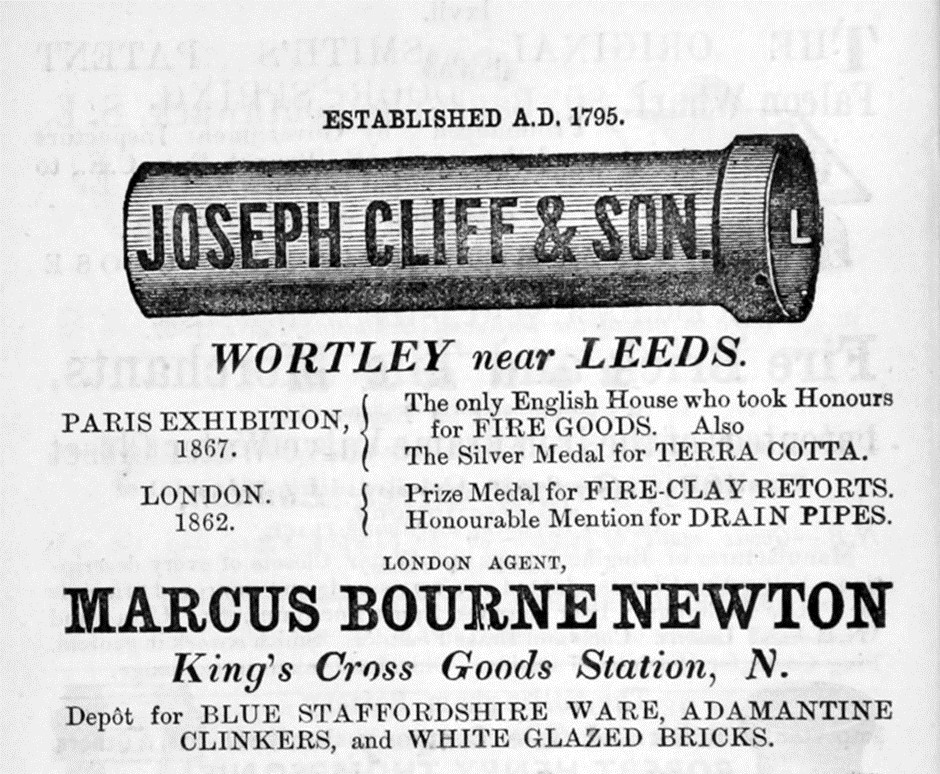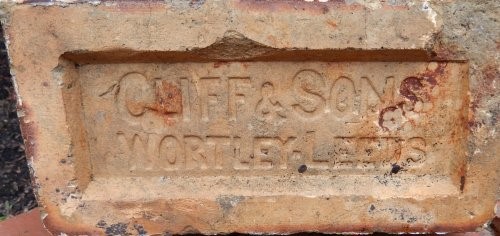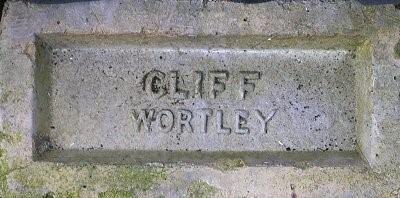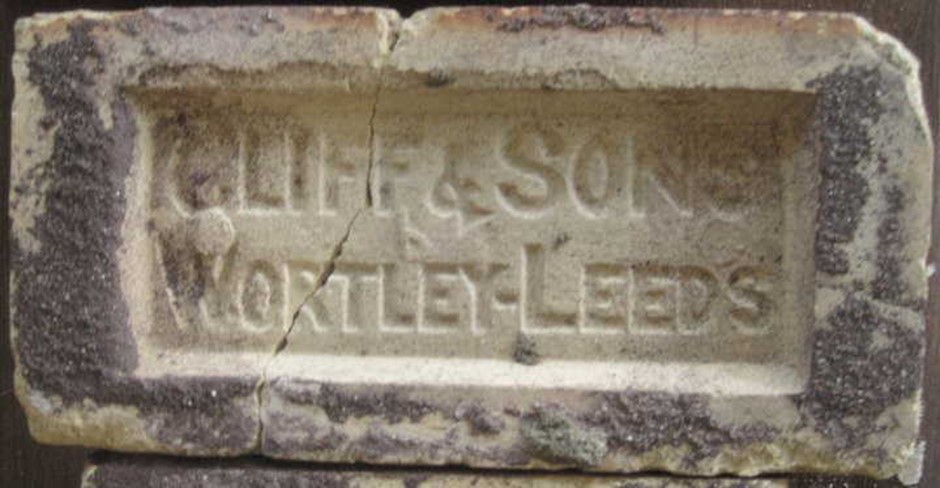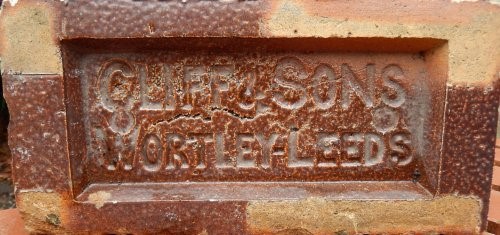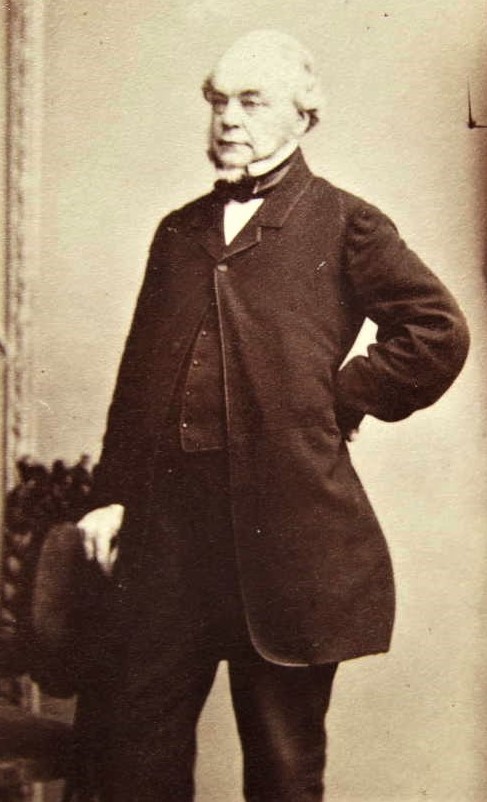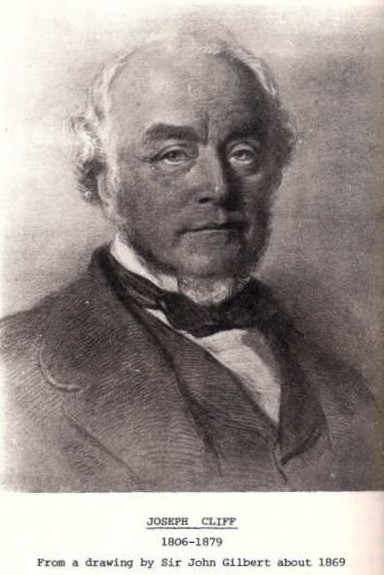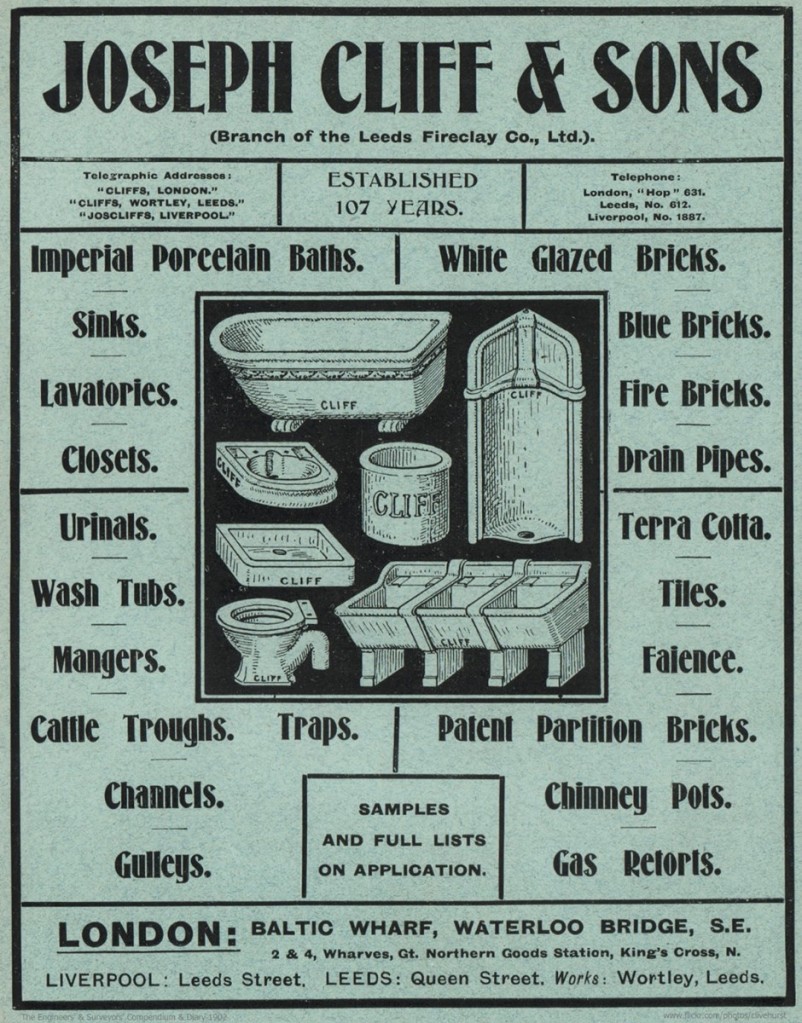The fortunes of the Cliff family begin with John Cliff, who was born in Armley on 27th April 1769 (below). Aged 24, John was a cloth maker, but a fortuitous change of career to ‘brickmaker’ set him on the road to wealth and social status. Between 1795 and 1796 he had founded ‘John Cliff & Sons, Brickmaker and ground clay dealer, Wortley’.
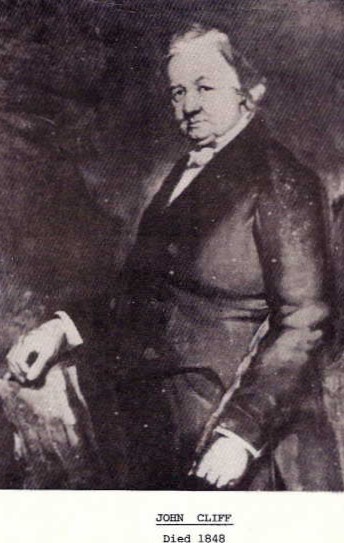
John passed away on 19th September 1848, but his son from his second marriage had already set about expanding his father’s business. Born on 13th August 1806, Joseph Cliff married Alice Dewhirst (1810-1892) in Leeds on 17th April 1828. By 1841, Joseph was a Firebrick Maker, and on 16th June 1843, Joseph had earned enough money to build Cliff House, also known as Western Flatts (pictured below), and set up his family’s home in Wortley.
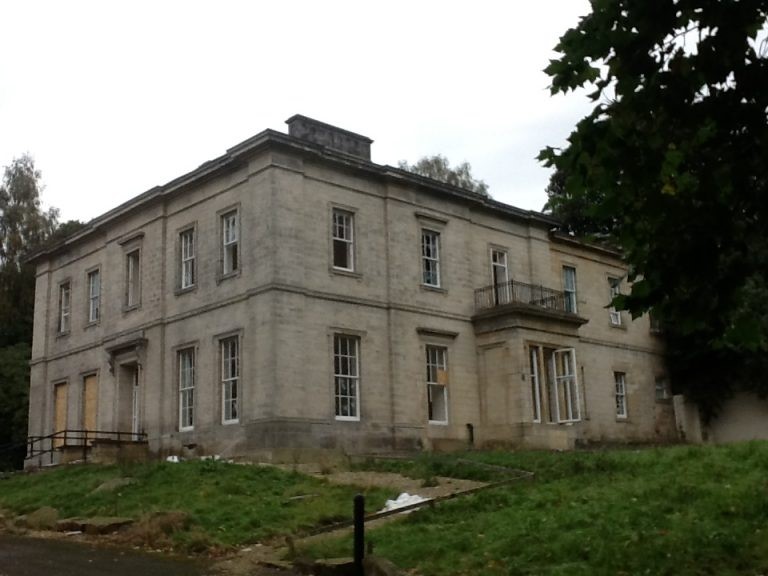
The same year as his father died, Joseph was placed upon the commission of the peace, becoming a magistrate of the borough of Leeds. Joseph changed the name of his father’s business to “Messrs. Joseph Cliff and Sons, Wortley, Leeds.” He also owned a brickworks in Dick Lane, Tyersal and the Shipley Fireclay Company, both in the Bradford area. Being rich, Joseph’s 14 children also married into wealth. On 20th September 1860 Joseph Cliff’s daughter, Emily Christiana (1837-1873), married James Kitson (later Lord Airedale, 1835-1911, below left) a famous Leeds ironmaster and locomotive builder. Joseph Cliff and his brother-in-law, William Edward Hirst, leased ninety-three acres in Scunthorpe and Frodingham, and 300 acres at Appleby, and went on to build the furnaces of the Frodingham Iron Company (right), producing iron from May 1865, and charging it with coke from another of his business interests at Penistone. Joseph appointed his second son, Joseph Cliff (1841-1914, below right) as manager of the Frodingham Ironworks in 1866 aged just 25.
Joseph’s eldest son John Cliff (1832-1900) married his first cousin Sarah Yewdale (1834-1888). Sarah was the daughter of Joseph’s sister Maria Cliff (1808-1874, below right) and her husband, the wealthy wool manufacturer David Yewdale (1808-1874, below left). This helped retain considerable wealth within the Cliff family, as David Yewdale’s estate was worth around £8.5m in today’s monetary terms.
Joseph was well known in Leeds for his business enterprises, and he was also a councillor for the Hunslet Ward. He was influential in establishing the Upper and Lower Wortley Cemetery and Chapel in Oldfield Lane, and continued to diversify his business interests. Around 1860, his company began making drain pipes:
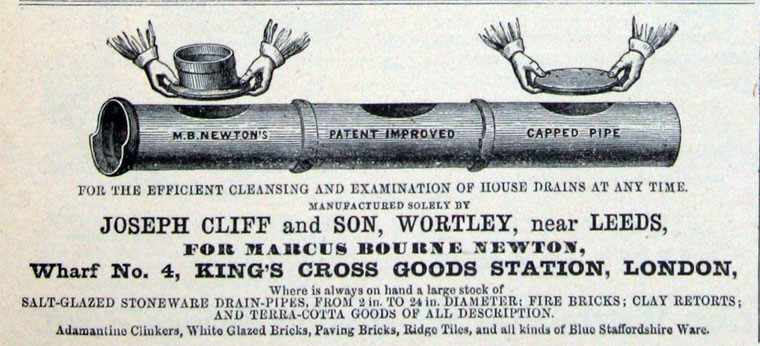
As the following advertisements from 1868 show, Joseph took his products and exhibited them in exhibitions:
But despite these additional businesses, Joseph’s core income was generated from brickmaking. Here are several examples of the variety of bricks made by Joseph Cliff & Sons:
Around 1872, Joseph (pictured below) bought the Micklefield Colliery & Lime Works, and two years later Joseph and his son William Dewhirst Cliff were present to dig the first sod of earth in preparation for the sinking of the two shafts for Peckfield Colliery. The Colliery opened around 1876. In 1879, Joseph Cliff was compelled by infirmity and indispositions to withdraw from public life. His visited Bournemouth hoping to see an upturn in his health, but passed away on 13th July 1879, aged 73.
Joseph’s fourteen children continued his business interests, and the organization Joseph had created became part of the well-known Leeds Fireclay Company. William Dewhirst Cliff (1842-1906) became managing director of Micklefield Coal & Lime Company Ltd, with his brothers Walter (1844-1917), Stephen (1851-1928), and William’s own son Percy (1865-1927) as Directors. On the 1881 census, William’s profession is given as “Magistrate for the West Riding of the County of York and also for the borough of Leeds. Firebrick manufacturer and coal master employing 800 people”
At the 1896 time of the disaster, William was meeting Benjamin Pickard and William Parrott amongst others in London, and hurried back to Leeds. He sent the following letter to Charles Houfton, but Walter Cliff was in attendance during the rescue efforts, Walter, Stephen and Percy attended the funerals, and Percy was also present at the Inquests. William’s sister Alice (1842-1906) also visited the homes of relatives. She lived at Morley Hall, and was married to Oliver Scatcherd, the Mayor of Morley.
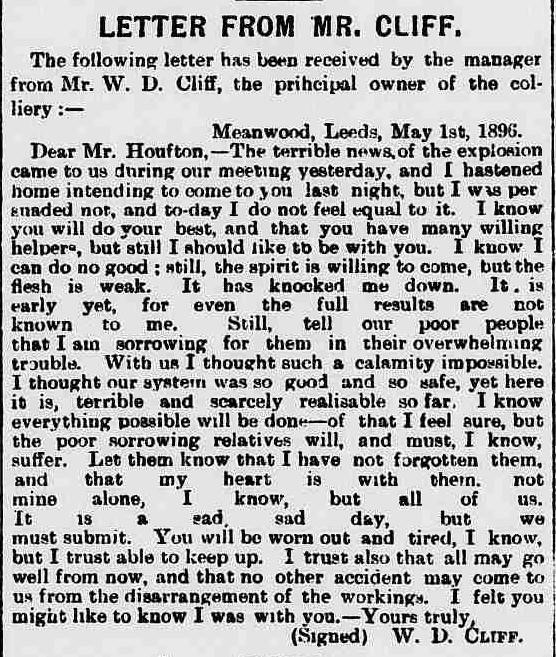
The Cliffs paid for the funerals of the 63 victims and for the wreaths, as reported by the Leeds Mercury:
Benevolence of the colliery proprietors
The whole of the funeral expenses of the victims of the catastrophe are being defrayed by Messrs. Cliff, the proprietors of the colliery. The whole of the coffins and conveyances have been supplied by the Leeds Undertakers, though where relatives had desired it, arrangements were made with local undertakers to carry out the funeral arrangements. On each of the coffins is the plate, on which is inscribed the name of the deceased, the date of his death, and his age. A wreath (supplied by the Yorkshire Seed Company) was sent by Messrs. Cliff to be placed upon each coffin, and in addition they forwarded £1 to all the bereaved families for mourning cards, &c. […] Three of the members of the firm – Messrs. Walter, Stephen, and Percy Cliff – were present yesterday at the funerals.
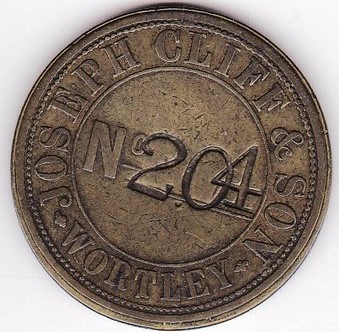
After the Disaster, the Cliffs continued with their other business interests:
In their wills, William Dewhirst Cliff left the modern-day equivalent of £11,125,693, Walter £24,481,768 and Stephen £58,280,440.
In 1929 Leeds City Council received a gift in the form of Cliff House, also known as Western Flatts, from the executors of Stephen Cliff (1851-1928).
